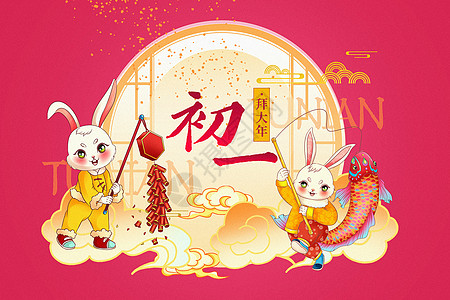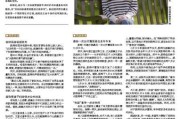本文目录导读:
- The Significance of the 2023 January 1st吉时
- Customs and Traditions on January 1st
- How to Choose a auspicious吉时
- Personal Practices on January 1st
- Conclusion

The Chinese New Year is one of the most important traditional festivals in Chinese culture, and January 1st, known as "Qianru" or "Yuan Day," is particularly significant. It marks the beginning of the new year and is considered a day of great importance for both individuals and families. The concept of choosing a auspicious moment for the New Year is deeply rooted in Chinese tradition, and the timing of the first lunar New Year is especially crucial. In this article, we will explore the significance of the 2023 January 1st吉时, the customs associated with it, and how people prepare for this special day.
The Significance of the 2023 January 1st吉时
The January 1st吉时 is chosen based on traditional Chinese astronomy and is believed to bring good fortune, prosperity, and harmony to the family. The timing of the New Year affects not only the personal life of the individual but also the entire family. Selecting a auspicious吉时 involves avoiding unfavorable energies and aligning with the flow of the coos to ensure a successful and harmonious year ahead.
In 2023, the January 1st吉时 is particularly auspicious, as it aligns with the natural cycles of the stars and the Earth. This makes it a perfect time to start fresh, set goals, and embark on new journeys. Families and individuals often choose this day to make significant decisions, such as purchasing a new home, starting a new business, or starting a new hobby.
Customs and Traditions on January 1st
-
Istallation of New Year Statues and idols: Families and individuals often place new year idols in their homes to ward off evil spirits and bring good luck. These idols are usually placed in the most sacred part of the home, such as the entrance or the dining room.
-
Cleaning and Maintenance: January 1st is a good time to clean and maintain one's home, as it is believed that the house will be filled with prosperity and happiness throughout the year. Cleaning the house also symbolizes the need to sweep away old negativity and make room for new opportunities.
-
Eating元宵: January 1st is also known as the "Lunar New Year," and one of the most important dishes is元宵. People eat元宵 to symbolize the reunion of family members and the continuation of good fortune.
-
Istallation of Red Envelopes: Red envelopes filled with money are given to children and unmarried individuals as a symbol of good luck and blessings. These envelopes are usually given on the first day of the year and are considered a tradition that has been passed down through generations.
-
Istallation of Red and Yellow Lamps: Red and yellow lanterns are often placed outside homes on January 1st to ward off evil spirits and bring good luck. These lanterns are usually lit in the evening and remain burning until the next year.
-
Istallation of Red and Yellow Pigs: Red and yellow pigs are also placed outside homes on January 1st. These pigs are believed to bring good luck and prosperity to the family.
-
Istallation of Red and Yellow Candles: Red and yellow candles are placed in homes on January 1st to ward off evil spirits and bring good luck. These candles are usually lit in the evening and remain burning until the next year.
-
Istallation of Red and Yellow Pigs: Red and yellow pigs are also placed outside homes on January 1st. These pigs are believed to bring good luck and prosperity to the family.
How to Choose a auspicious吉时
Choosing a auspicious吉时 involves understanding the Chinese zodiac and the positions of the stars. It is important to avoid吉时 that are considered unlucky, such as when the stars are in a position that is believed to bring misfortune. People often consult with astronomers or use traditional tools to determine the best吉时 for the New Year.
In addition to avoiding unlucky吉时, it is also important to choose a吉时 that aligns with the flow of the coos. This means selecting a day and time that is in harmony with the natural cycles of the stars and the Earth. By choosing a auspicious吉时, families and individuals can ensure a successful and harmonious year ahead.
Personal Practices on January 1st
On January 1st, many people take personal practices to mark the beginning of the New Year. These practices include making resolutions, setting goals, and starting new habits. It is also common for people to reflect on their past year and look forward to the future.
For those who are single, January 1st is often a time to start anew and find a new partner. Singles may choose to date more actively or focus on building their social life. For those who are in relationships, January 1st is a time to strengthen the bond and make plans for the future.
Conclusion
The 2023 January 1st吉时 is a day of great significance in Chinese culture. It is a time to celebrate the new year, make resolutions, and start fresh. Families and individuals take great care to choose a auspicious吉时, as it is believed to bring good fortune, prosperity, and harmony to the year ahead. Whether through traditional customs, personal practices, or simply enjoying the day with loved ones, January 1st is a day to remember and cherish.
2022春节初一吉时辰,auspicious Moments in the New Year
初二auspicious timing,2024年的auspicious moments for students and families
天辅星吉时,auspicious Moments for Success and Prosperity
2024年农历3月初九吉时,auspicious moments for prosperity and harmony
23吉时,选择 auspicious moments for prosperity and harmony
2017元旦吉时,选择 auspicious moments for happiness and prosperity
2021年3月黄历吉时,选择 auspicious moments for success and harmony
二号黄历吉时,选择 auspicious moments for success and harmony
开工吉时,解读 auspicious moments for starting a new project or venture
标签: #吉时








